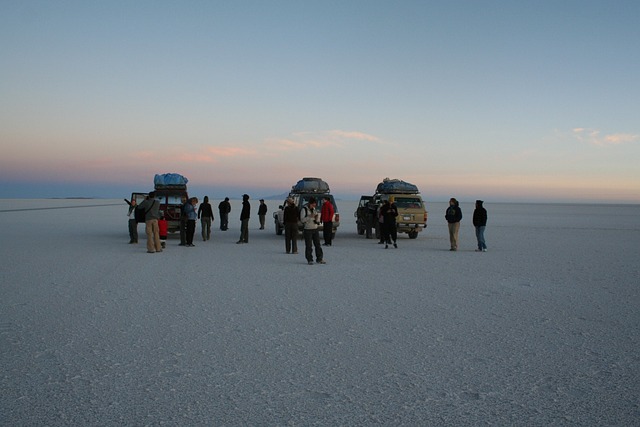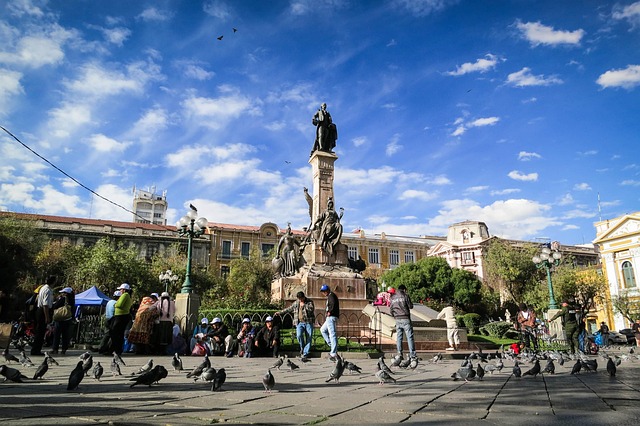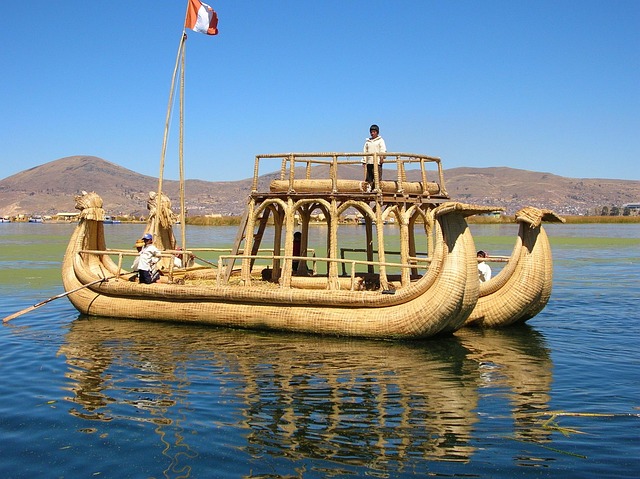
After Bolivia's legal defeat in The Hague, the issue of maritime claim is only heard every March 23rd, a fact that experts describe as a setback with Chile. They propose a structural change in relations with Chile and the world.
With nearly half a century of broken diplomatic relations between Bolivia and Chile and with the maritime claim buried in 2018 by the ruling of the International Court of Justice (ICJ) - following the lawsuit promoted by Evo Morales - Bolivia commemorates a new Sea Day. It is the last message in President Luis Arce's era in his five years of administration. Career diplomats see a "resounding failure" of the "diplomacy of the peoples" that prevailed during the last 19 years of the two governments of the Movement Towards Socialism (MAS).
Former Foreign Minister Karen Longaric; former ambassador and expert in international relations, Gustavo Aliaga; and legislator of the Senate's International Policy Commission, Daly Santa María, propose that the new government that is established from November of this year must work on an urgent restructuring of Bolivian diplomacy. They suggest that this new administration not isolate Bolivia from its neighbors and manage to reestablish full diplomatic relations with Chile; but yes, without neglecting the centenary maritime aspiration.
"From the next government, we have to change. We have to make a Copernican turn and resume Bolivia's original relations, and not only with Chile, but with all the neighbors. We cannot be at odds with Latin American countries because we are part of it," diplomat and congressman Gustavo Aliaga (CC) told EL DEBER.
The expert reported that Bolivia and Chile broke diplomatic relations 47 years ago - on March 17, 1978 - after the failure of negotiations between Hugo Banzer and Augusto Pinochet, both dictatorial governments. This break makes it the longest diplomatic conflict in Latin America.
Former Foreign Minister Longaric also starts from the idea that Bolivia and Chile must reestablish their diplomatic relations because they are neighboring countries, for all commercial and border issues, migration, the fight against smuggling and against drug trafficking, among others.
"In that agenda, the maritime issue must always be present for us. We will see at what point we can return to dialogue on that issue. It is something that has to be worked on a lot," Longaric told this medium.

Everything But the Sea
Since the International Court of Justice (ICJ) of The Hague, on October 1, 2018, ruled against Bolivia with 12 votes against and said that "Chile did not contract the need to negotiate a sovereign outlet to the sea," the issue of maritime claim is timidly dusted off once a year: every March 23rd in the speech of the President of the State.
And that exercise remains only in the harangue of the president who clashes with the customary indifference of La Moneda. In that plane, for Gabriel Boric, who is of the same left-wing tendency as Arce, the maritime demand with Bolivia is a closed issue.
But the scenario changes when other issues of bilateral interest are discussed and promises of a promising future arise. "So much time away with our brothers from Bolivia, having so much in common. It is time to advance in greater integration," said the Chilean president, on March 1, when he met in Uruguay with his Bolivian counterpart.
"We had a pleasant meeting with the brother president of Chile, Gabriel Boric, today in Uruguay. The winds of the south blow with more force, unity and social justice!" posted the Bolivian head of state on his social networks, where he also showed off a photo with Boric, both smiling.

Setback with MAS
Longaric, in a retrospective since 2006 when Evo Morales began to govern, said that especially on the maritime issue there was no progress; moreover, she said that there was only a "notable setback," a fact that is manifested in various historical episodes, for example, Chile's triumph when it managed, with intense negotiations, that the member countries of the OAS, withdraw support from Bolivia on the maritime issue.
"First in the General Assembly of the OAS that was held in Cochabamba, in June 2012. On that occasion, Chile presented a draft resolution indicating that the maritime issue was bilateral, and achieved almost unanimous approval. Until before that date, since 1975 the OAS stated that the maritime issue was multilateral and its solution was of regional interest. That was a resounding failure in Bolivian territory and the biggest defeat at the multilateral level is suffered," Longaric said.
Another major setback with Chile was the breakdown of dialogue and the 13-point agenda that Morales agreed with Michelle Bachelet, who at that time governed Chile. Almost immediately, in 2013, Morales filed the lawsuit against Chile before the ICJ and five years later in The Hague a ruling is issued in favor of Chile.
But despite this setback and international defeats, the issue of maritime claim is not buried. "In no way, because it is not owned by any government, or any party. The maritime issue is the most important issue on the Bolivian foreign policy agenda," Aliaga said.
Without involving diplomatic relations, between Bolivia and Chile, commercial exchange is fluid and intense. For example, Chilean imports reach more than 1.5 billion dollars, while Bolivian exports to Chile are only 235 to 250 million dollars. 63% of Bolivian maritime cargo passes through Chilean ports and Chile is the fourth favorite destination for Bolivians who go abroad, which translates into 350 million dollars in remittances from Chile to Bolivia.
For all that, Aliaga sees it necessary to redirect diplomacy. "This relationship is structural, it is necessary and we have to build a relationship that allows us to see another Chile and another Bolivia. We have consular relations, but we have not built a mature relationship. We need a much more structural relationship and that has greater dynamism," he said.
The importance of a new relationship with Chile can benefit above all the west of the country, such as Potosí, Oruro and La Paz, because they are neighbors of that country. Aliaga compares the relationship of Santa Cruz with Brazil and Paraguay, where there is an intense activity of commercial exchange.
"It is also a geographical issue. In the east, Santa Cruz has openness with Brazil and Paraguay, its economic reality is very different and it has an outlet to the Atlantic with the waterway. On the other hand, in the west the relationship with Peru and Chile have been very negative, that is why it is necessary to build another type of relationship with Chile," Aliaga said.
Senator Santa María considered that, in the five years of Luis Arce, foreign policy "has been null, inconsequential, without brilliance and without results of any kind, not only with Chile, but with the five neighboring countries," she said and pointed to Foreign Minister Celinda Sosa.
"We have a foreign minister who we do not know who she is, what she does, where she travels. We do not see results, bilaterally or multilaterally, Bolivia is isolated, it is as if it lived on another planet in terms of international policy," Santa María said. The legislator added that the maritime claim has been replaced by the constant complaints of vehicle thefts from the neighboring country, a fact that reflects Bolivia's poor border control.
Despite everything, Santa María sees that a relationship with Chile is urgent. "The time has come to look at the relationship with Chile more pragmatic, with clear and effective objectives. We are obliged to relate daily, our border is very wide and our bilateral agenda also," she said.

Both Countries Promote Border Agreements
While the population was preparing to enjoy the carnival festivities, on February 27, two Chilean ministers arrived at the Casa Grande del Pueblo, in the city of La Paz. The purpose of the trip was to sign two bilateral agreements on migration and transit at the border. The agreements were signed by the Minister of Government, Eduardo Del Castillo.
The Chilean ministers who arrived at the seat of government were the Minister of Transport and Telecommunications, Juan Carlos Muñoz; and the Minister of the Interior and Public Security, Carolina Tohá. The latter very close to the president of Chile, Gabriel Boric.
The arrival of the two Chilean authorities to Bolivia was two months after Del Castillo visited La Moneda to sign the first agreements on border issues and control of illegal migration. At no time did the Bolivian Foreign Minister, Celinda Sosa, participate.
One of the bilateral agreements was the "mutual recognition of driving licenses" of Bolivians and Chileans and its purpose is to "homologate" that document, either in physical or digital format, of the citizens of both countries.
The other agreement was the additional protocol for compliance with the migration cooperation agreement, which aims to combat human trafficking and the illegal trafficking of migrants. That agreement was signed by Del Castillo on December 22, 2024 in Santiago and authorizes Chile to deport illegal Venezuelans to Bolivian territory and expatriate nationals. This agreement was heavily criticized in the Bolivian diplomatic field.
In addition, another agreement was signed through which Bolivians and Chileans living on the border will be able to access a "border neighborhood transit card" in Migration offices to move in both territories for a period not exceeding three days. Another agreement is to shorten the procedures to obtain temporary residence for work and the procedure must be carried out in 15 days.
[Copyright (c) Global Economic Times. All Rights Reserved.]




























